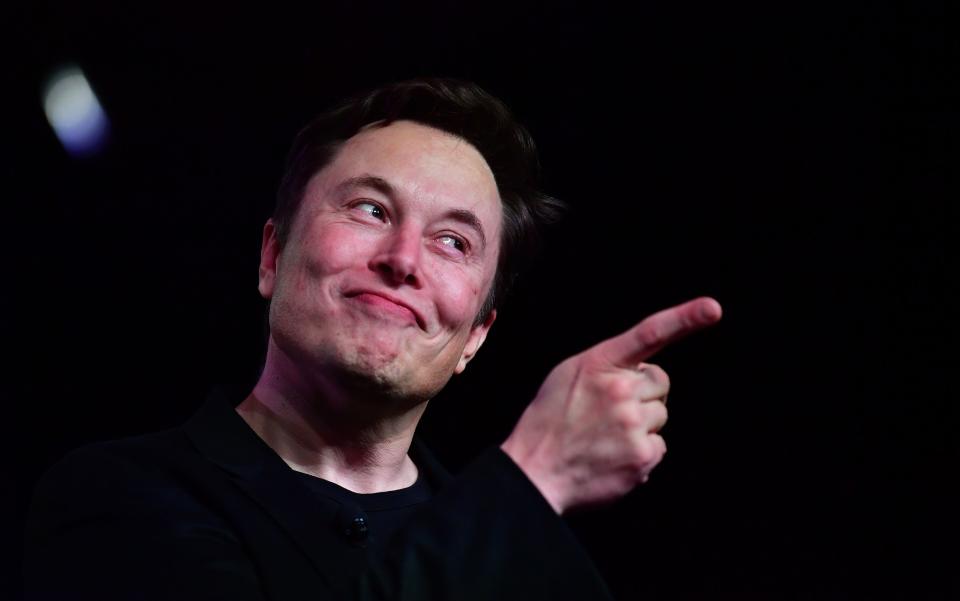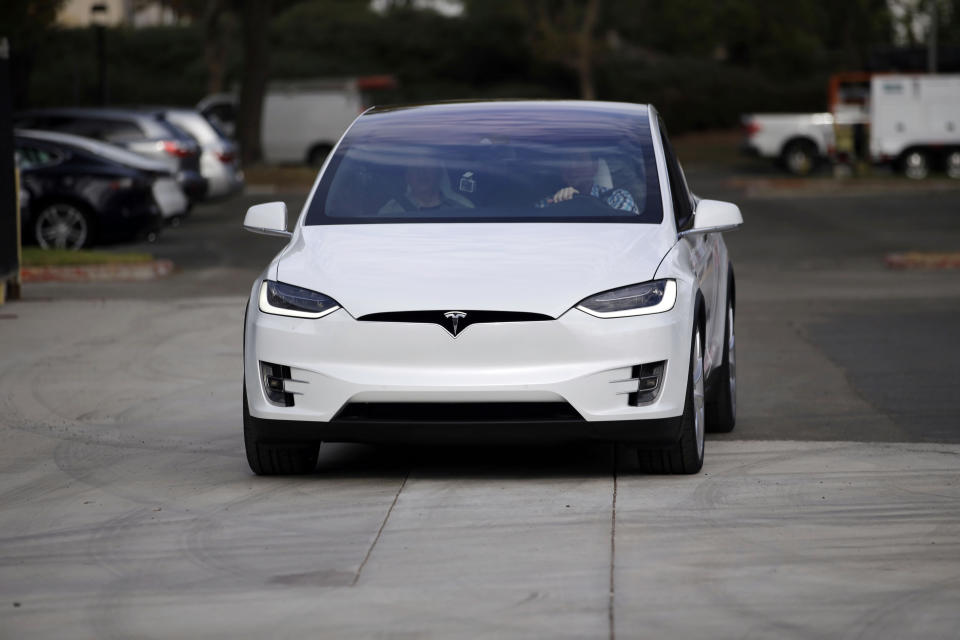Tesla's Berlin pick for European factory sparks German 'euphoria'

Brandenburg is in a state of “great euphoria,” over Elon Musk’s announcement that he has picked the German state that surrounds Berlin as the place to build his first European plant, local politician Erik Giese said on Wednesday.
The billionaire surprised the audience at the Auto Bild car awards ceremony on Tuesday by saying he would build Tesla’s (TSLA) first European plant near Berlin.
Economics minister Peter Altmaier called it a “milestone in the development of electric mobility and battery expertise,” adding that Tesla’s decision was “further proof of the attractiveness of Germany as an automobile location.”
However, Musk had said on several occasions that Germany was a frontrunner as a location for the first European Gigafactory — the surprise was that Brandenburg was chosen and not, as many expected, the wealthy western states of Lower Saxony or North Rhine-Westphalia.
READ MORE: Elon Musk to build first European Gigafactory near Berlin
Negotiations went on in secret with Tesla for five to six months, according to Brandenburg state premier Dietmar Woidke. “We offered various locations and this one suited Tesla,” Woidke said. He said that Brandenburg’s renewable energy resources were an important deciding factor for Musk.
Musk joked on Tuesday that he hoped his factory would be built faster than Berlin’s new international airport. BER, which was started in 2006, still stands empty due to a seemingly endless series of problems and mismanagement. It may or may not open next year.
The Gigafactory, which will produce batteries, powertrains and the Model Y, is expected to bring 6,000-to-7,000 new jobs to what is one of Germany’s poorer states.
In 2018, Brandenburg accounted for only a 2.1% share of the country’s GDP, ranking number 11 out of 16 states in terms of gross regional product.
While politicians hailed the news as evidence that Germany was now destined to become a real leader in e-mobility, analysts pointed out that the key factors in Brandenburg’s favour were its proximity to startup hub Berlin, one of the top tech cities in the EU, cheaper personnel in the region, and the fact that nearby Poland would also be a source for workers.
With Musk reportedly aiming to have his factory up and running in Germany in 2021, the electric race between the US upstart and Germany’s legacy carmakers is officially on.

READ MORE: Tesla's real battle in Europe begins in 2020
Germany’s Institute for Economic Research told Reuters that Tesla setting up shop should not worry Germany’s own carmakers. “On the contrary, they also profit,” said economist Alexander Schiersch, noting that demand created by Tesla will “strengthen the whole supplier industry here at home.”
"Eastern Germany as a whole will take a big step forward through such a massive investment by Tesla in an important industrial future," said Schiersch.
However, Berlin-based automotive analyst Matthias Schmidt told Yahoo Finance UK: “Tesla may face more of a challenge in opening a facility in Germany than China.
“The delay to the airport, stemming essentially from a faulty sprinkler system, proves the German love for detail, which could have a cultural clash with a company more accustomed to banana launches (let it ripen with the customer) and temporary tented production lines.”
Schmidt said that while Tesla will benefit from lower-wages, Berlin’s attractive reputation, and the “Made in Germany” halo, the Gigafactory could also mean a big, tangible benefit to German carmakers, helping them “bring down crucial EV costs with more centralised production resulting in an ever-expanding supplier network.”
Lagging in the e-car race
The German government has been wringing its hands because the country is way behind its stated — and now unachievable — goal of putting 1 million e-cars on the roads by 2020. It is also concerned about the lack of domestic battery production, and has earmarked €1bn in subsidies to support companies to develop battery-cell production in Germany. This month it announced it will plough more money into the build-out of national charging stations and increase the subsidies on electric cars to attract more buyers.
German supplier-giant Bosch said last year that it was not going to invest in battery-cell development. Meanwhile this year, Volkswagen has begun the pilot phase of a new battery-cell development centre in Salzgitter, and will invest €900m into a joint venture with Sweden’s Northvolt to open a lithium-ion battery by 2023.
Establishing a European production base is a smart move for Tesla, since US president Donald Trump continues to threaten European carmakers with tariffs, and Brussels would likely react with counter-tariffs on US-made cars. It will also cut costs for Tesla in one its most important markets, especially for the mid-priced Model 3.
Germany’s own carmakers have been tight-lipped about the news — VW has just started production of its electric VW ID.3 at Zwickau, eastern Germany — but there is no doubt that Musk bringing the fight to their doorsteps piles up the pressure on them.
READ MORE: Volkswagen begins pilot production of battery cells for its electric-car push

 Yahoo Finance
Yahoo Finance 